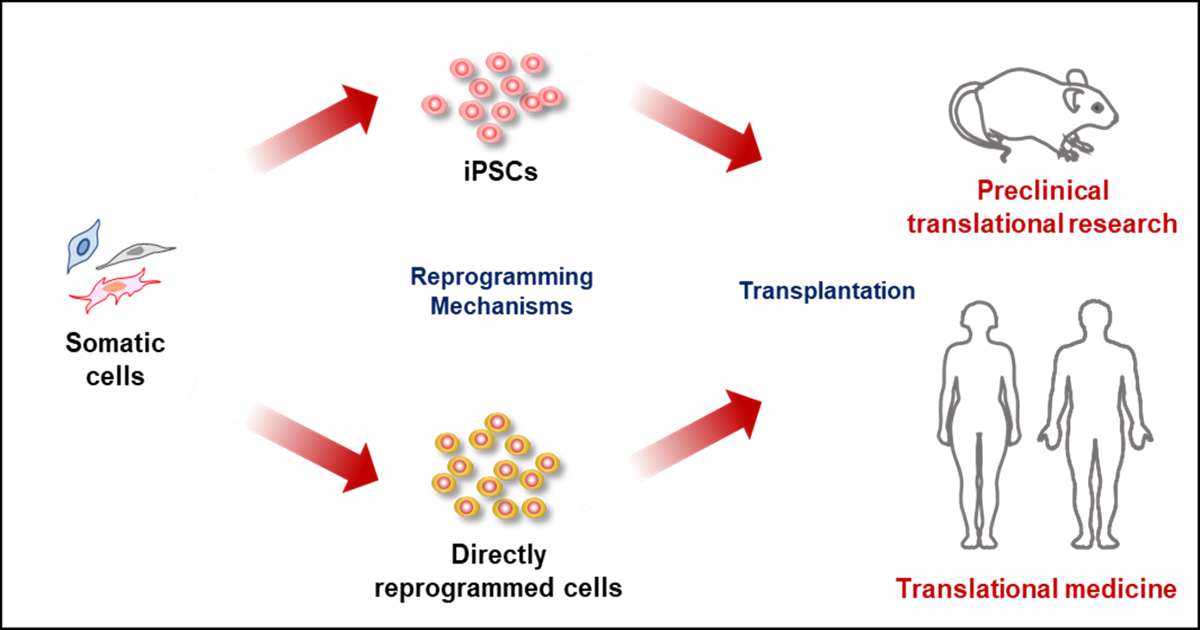- 5.2Impact Factor
- 10.5CiteScore
- 16 daysTime to First Decision
Cellular Reprogramming in Translational Research and Medicine
This special issue belongs to the section “Stem Cells“.
Special Issue Information
Dear Colleagues,
Cellular reprogramming, including stem/progenitor cells and other functionally defined therapeutic cells, hold tremendous promise for patients with organ failure, as well as for diseases and disorders that cannot be cured by currently available medications. This biomanufacturing strategy is based on easily accessible and readily expandable cell sources that can provide desirable properties required for a given disease, i.e., tissue regeneration or paracrine actions. During the past decade, substantial advances have been made in differentiating human pluripotent stem cells, including induced pluripotent stem cells (iPSCs) and embryonic stem cells (ESCs), into specific lineage cells; however, these approaches raise the potential risk of tumorigenesis and ethical concerns, thus restricting their clinical applications. Accordingly, trans-differentiation of a functional cell type into another lineage, bypassing the pluripotent stage, can provide powerful benefits for clinical use in a tissue- and patient-specific manner. Nonetheless, challenges for large-scale, cost-effective, reproducible production of high-quality cells and strategies for maximizing their therapeutic performance must be addressed before clinical trials are conducted. In this context, recent progress in manipulating cell fates employing various sets of reprogramming factors and bioactive molecules show substantial improvements in efficiency, safety, reproducibility, and therapeutic feasibility in vivo.
The aim of this Special Issue is to publish original research articles in novel reprogramming technologies, understanding of the underlying mechanisms governing cellular reprogramming and its potential for translational medicine. Review articles critically and systematically covering the related researches, providing concluding remarks and future outlook in the field and highlighting their broad applicability in cellular reprogramming and its translational medicine will be considered for inclusion in this Special Issue.
Manuscript Submission Information
Manuscripts should be submitted online at www.mdpi.com by registering and logging in to this website. Once you are registered, click here to go to the submission form. Manuscripts can be submitted until the deadline. All submissions that pass pre-check are peer-reviewed. Accepted papers will be published continuously in the journal (as soon as accepted) and will be listed together on the special issue website. Research articles, review articles as well as short communications are invited. For planned papers, a title and short abstract (about 250 words) can be sent to the Editorial Office for assessment.
Submitted manuscripts should not have been published previously, nor be under consideration for publication elsewhere (except conference proceedings papers). All manuscripts are thoroughly refereed through a single-blind peer-review process. A guide for authors and other relevant information for submission of manuscripts is available on the Instructions for Authors page. Cells is an international peer-reviewed open access semimonthly journal published by MDPI.
Please visit the Instructions for Authors page before submitting a manuscript. The Article Processing Charge (APC) for publication in this open access journal is 2700 CHF (Swiss Francs). Submitted papers should be well formatted and use good English. Authors may use MDPI's English editing service prior to publication or during author revisions.
Keywords
- cellular reprogramming
- stem/progenitor cells
- cell therapy
- cell transplantation
- preclinical assessment
- regenerative medicine
- translational medicine

Benefits of Publishing in a Special Issue
- Ease of navigation: Grouping papers by topic helps scholars navigate broad scope journals more efficiently.
- Greater discoverability: Special Issues support the reach and impact of scientific research. Articles in Special Issues are more discoverable and cited more frequently.
- Expansion of research network: Special Issues facilitate connections among authors, fostering scientific collaborations.
- External promotion: Articles in Special Issues are often promoted through the journal's social media, increasing their visibility.
- Reprint: MDPI Books provides the opportunity to republish successful Special Issues in book format, both online and in print.


